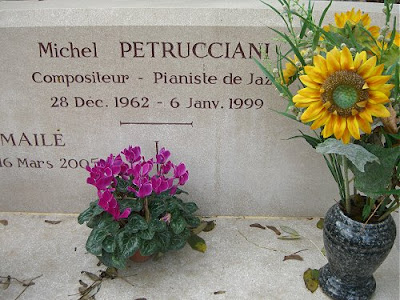Classical music is excited about the wrong things

Ask anyone in the business what is the biggest challenge facing classical music, and it is odds on their reply will revolve around funding cuts, inadequate music education and ageing audiences. It is also a dead certainty that retrogressive attitudes within classical music itself will not feature among the challenges. Which is puzzling when you look at what classical music gets excited about. The New Year started with a global concert by one of the most reactionary institutions in the arts world. This was followed by the Mahler ringtone in a teacup and then came the world premiere of two minutes of music by a long dead composer vigorously spun by a social media agency retained by the audience hungry BBC with a little help from their Guardian angel.
All of which was enough to convince the general public that classical music had somehow manouvered its cerebral cortex into the proximity of its nether regions, even before it turned out that the Brahms "discovery" was the product of spin and not substance. It would be difficult to accept all this nonsense even if there was no substance left to get excited about. But that is most certainly not the case, as is proved by this notable new CD release.

My post about the recent music and symmetry event at Snape curated by Oxford professor of mathematics Marcus du Sautoy generated a lot of attention. The subject of music's overlap with science always exerts a particular fascination, possibly because it takes us into what the Sufi philosopher Ibn 'Arabi called barzakh or the intermediate world, the realm between the known and unknown. Creation theory remains a contentious subject for both Christians and Muslims and in 2009 the evolutionists celebrated both the bicentenary of Darwin’s birth and the 150th anniversary of the publication of his seminal work ‘On the origin of Species’ with events including the Cambridge Darwin Festival.
As part of the Festival celebrations the organisers commissioned the String Quartet No.4 "Charles Darwin" from composer John Ramsay. The Quartet is written as a single twenty-one minute movement divided into three sections. The first portrays the evolution of the earth from chaos to order, the second describes the development of life and the arrival of Homo sapiens, and the third is a speculation on the future of our planet and mankind. In Ivesian style the quartet quotes from liturgical music of the three monotheistic religions and the 5/4 rhythmic pulse from Holst's Mars makes an appearance representing human discord.

John Ramsay, seen below, was born in London in 1931. He studied music privately with several distinguished teachers and has combined music with an illustrious academic career in the field of geology culminating in professorships at Imperial College London, the University of Leeds and University of Zurich. Since retiring he has lived in Isirac, France where he teaches the cello and continues with some academic work. John Ramsay's music explores the outer reaches of tonality and shows the influence of Bartók and Martinů and Ives. It is notable for its use of non-twelve tone serialism; as an example the Fibonacci Series, the Golden Section, determines the harmonic series in the fifth movement of his String Quartet No.4.
At a time when decoding is mandatory to separate spin from substance, it is refreshing to discover a CD release that does exactly what it says on the can. John Ramsay's Four String Quartets have been recorded by the Fitzwilliam Quartet - acclaimed for their Shostakovich recordings - on 2 CDs for independent label Métier. Totally committed performances are captured in excellent sound in St. Martin's Church, East Woodhay, Berkshire by Philip Hobbs, who is best known for his work for Linn Records. But above all we are not dealing with promise: John Ramsay comes to us as a fully formed composer with something important to say and the technique to say it. It would be nice if classical music gets as excited about eighty-seven minutes of never previously heard John Ramsay as it did about two minutes of previously heard Brahms. But I am not holding my breath.

* The distinctive cover art and CD label seen here use micro-photographs of rock crystals in polarised light by John Ramsay. Writing string quartets is most definitely not among my talents or ambitions, but I did read geology as a subsidiary subject at university. Which leads to Meditations on a Byzantine hymn.
Also on Facebook and Twitter. CDs of John Ramsay's Four Quartets were supplied as a requested sample. Any copyrighted material on these pages is included as "fair use", for the purpose of study, review or critical analysis only, and will be removed at the request of copyright owner(s). Report broken links, missing images and errors to - overgrownpath at hotmail dot co dot uk






Comments
Totally agree. There are so many issues about how classical music presents itself and many seem blind to them. Even as a lover of the music of past centuries, the dismissal by so many in the field of the new or difficult is very depressing to me. I can think of no other art form that is quite so deaf to its own future.